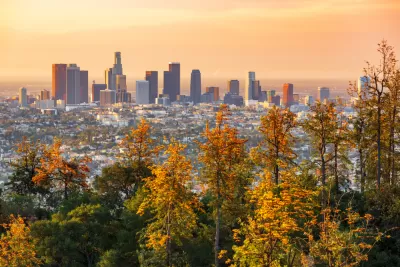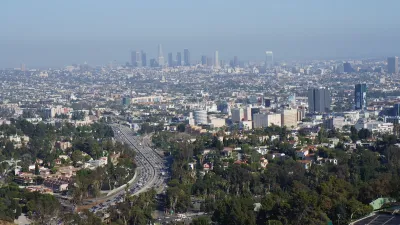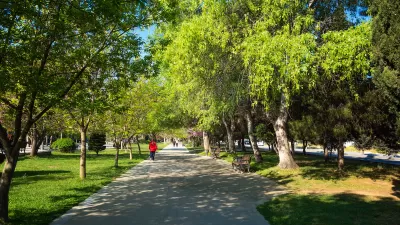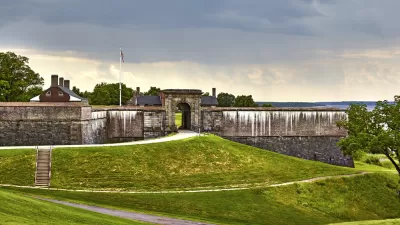A USC study finds that Los Angeles’ urban trees absorb more carbon than expected, but while they provide crucial environmental benefits, they cannot replace the urgent need for systemic emissions reductions.

A groundbreaking study from USC Dornsife College has found that trees in central Los Angeles absorb significantly more carbon dioxide than previously estimated, offsetting up to 60 percent of daytime fossil fuel emissions in the warmer months and about 30 percent annually. Using an innovative network of high-resolution CO2 sensors called the Carbon Census array, researchers tracked emissions in real time, providing one of the most detailed measurements of how urban greenery impacts air quality. Unlike traditional models that estimate CO2 levels indirectly, this study measured carbon emissions directly over an 18-month period, yielding a more precise understanding of how vegetation interacts with urban pollution.
One of the most surprising findings was that trees absorbed the most carbon dioxide during summer, despite the season’s dryness. Researchers attribute this resilience to irrigation, groundwater access from leaky infrastructure, and drought-resistant tree species. However, while urban trees play a critical role in improving air quality, they cannot fully offset emissions from cars, buildings, and industry. CO2 levels still spiked during rush hours, reinforcing the need for broader systemic changes. The study supports the USC Urban Trees Initiative, which seeks to expand greenery in communities most in need, using data-driven insights to guide tree planting efforts where carbon absorption is highest.
Looking ahead, researchers are expanding the sensor network to cover more areas of Los Angeles, helping to define baseline CO2 levels and identify regions where vegetation can make the biggest impact. While urban trees provide a natural boost to carbon reduction, lead researcher Will Berelson emphasizes that they are not a substitute for larger climate solutions. “Nature is helping us, but we can't rely on it to do all the work," he said, underscoring the need for clean energy, better public transit, and broader emissions reductions to meet the city’s goal of carbon neutrality by 2050.
FULL STORY: L.A.'s urban trees absorb more carbon than expected, study finds

Planetizen Federal Action Tracker
A weekly monitor of how Trump’s orders and actions are impacting planners and planning in America.

Map: Where Senate Republicans Want to Sell Your Public Lands
For public land advocates, the Senate Republicans’ proposal to sell millions of acres of public land in the West is “the biggest fight of their careers.”

Restaurant Patios Were a Pandemic Win — Why Were They so Hard to Keep?
Social distancing requirements and changes in travel patterns prompted cities to pilot new uses for street and sidewalk space. Then it got complicated.

Platform Pilsner: Vancouver Transit Agency Releases... a Beer?
TransLink will receive a portion of every sale of the four-pack.

Toronto Weighs Cheaper Transit, Parking Hikes for Major Events
Special event rates would take effect during large festivals, sports games and concerts to ‘discourage driving, manage congestion and free up space for transit.”

Berlin to Consider Car-Free Zone Larger Than Manhattan
The area bound by the 22-mile Ringbahn would still allow 12 uses of a private automobile per year per person, and several other exemptions.
Urban Design for Planners 1: Software Tools
This six-course series explores essential urban design concepts using open source software and equips planners with the tools they need to participate fully in the urban design process.
Planning for Universal Design
Learn the tools for implementing Universal Design in planning regulations.
Heyer Gruel & Associates PA
JM Goldson LLC
Custer County Colorado
City of Camden Redevelopment Agency
City of Astoria
Transportation Research & Education Center (TREC) at Portland State University
Camden Redevelopment Agency
City of Claremont
Municipality of Princeton (NJ)





























